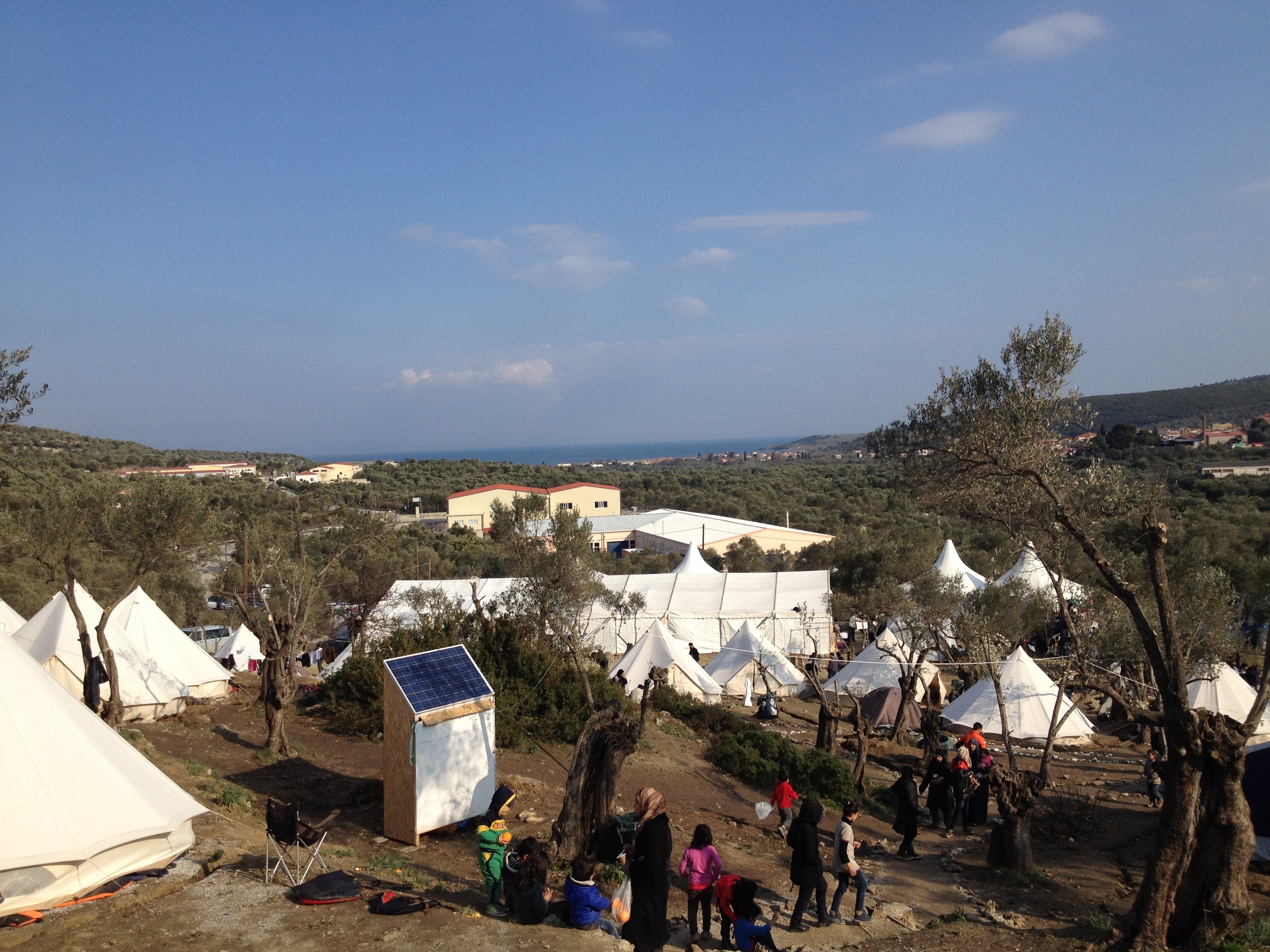the "translator"
 When I first arrived at Moria Camp I knew that I wanted to use my Arabic skills as much as possible to help out. However, I intentionally avoided the medical tent because I was afraid that a bad translation could potentially harm someone. But the longer I've been here, the more word of my being "an Arabic translator" has spread. I have to laugh at that, because I'm definitely not a translator. When I'm speaking with people in Arabic I usually have to ask them to repeat themselves a lot, and then I infer a lot based on whatever context we're in. It's a lot of guessing, and I definitely don't always know what's going on.
When I first arrived at Moria Camp I knew that I wanted to use my Arabic skills as much as possible to help out. However, I intentionally avoided the medical tent because I was afraid that a bad translation could potentially harm someone. But the longer I've been here, the more word of my being "an Arabic translator" has spread. I have to laugh at that, because I'm definitely not a translator. When I'm speaking with people in Arabic I usually have to ask them to repeat themselves a lot, and then I infer a lot based on whatever context we're in. It's a lot of guessing, and I definitely don't always know what's going on.
But I was called in to the medical tent by my new friend Omar who also speaks Arabic, probably at a similar level to myself. He said he was having trouble understanding what a woman needed, so I said I'd try to help. The woman had two small children with her and after much confusion, I finally realized she just needed my help to carry one of her children into the main room so the doctor could look at the smaller child. So, for the first time in my life, I held a baby. He was wriggling around and clearly freaked out that a woman other than his mother was carrying him, but I did all right.
Once we'd arrived in the next room, the doctor wanted me to help with translations, asking things like: "Does the baby have diarrhea?", "When was the last time he pooped?" and "Did you give him milk or water?".
I don't know the word for diarrhea, or poop in Arabic. Sorry. So I tried to mimic those actions to the mother who had no clue what I was going on about. Eventually the doctor was able to make a rough translation using the international language of hand signals. I was able to help translate a few questions and answers though, so overall I felt as if I'd been helpful. That was, until the mother approached Omar and told him that she'd rather he just translate, because his Arabic is better than mine.
Omar translated that sentence to me, but I didn't need him to. It was clear what she was saying, and that she hadn't expected me to understand. Even though I knew she was wrong, my confidence was still lowered and I felt off for the rest of the day.
--
Later on, Omar approached me again asking for help. This time for something completely different. He'd met a man, Hamid, whose family had lost almost everything to the Turkish police, including some of their passports. I'm not entirely sure what Omar's intention was in bringing me into this conversation, but I was glad that I was able to help in the end.
I told Omar that I had funds from donations I could give him, I just needed to get into the city to withdraw some money. Omar told this to Hamid, who immediately asked for Omar's phone number, promising to repay him once he reached Germany. Of course Omar told him this wasn't necessary, and explained that the money was from our family and friends back home.
I ran off in search of someone who could give me a ride into Mytilini. I ran into a group of Iranian-American guys who had just pulled up to the camp and told them what I was doing. They didn't particularly want to leave because they had just arrived and were excited to start working. So instead of giving me a ride into town, they pulled out their wallets and gave me money. It turns out they had raised some funds before coming here as well, and they were more than happy to share.
I brought the guys over to meet Hamid, and once I gave him the money, things got really emotional.
"Is he crying?" One of the Iranian-American guys asked.
"Yeah, he is." I said.
The Iranian-American guy walked up to Hamid and gave him a hug. They all hugged. It was a beautiful moment. Hamid looked over at me and told me a heartfelt thank you.